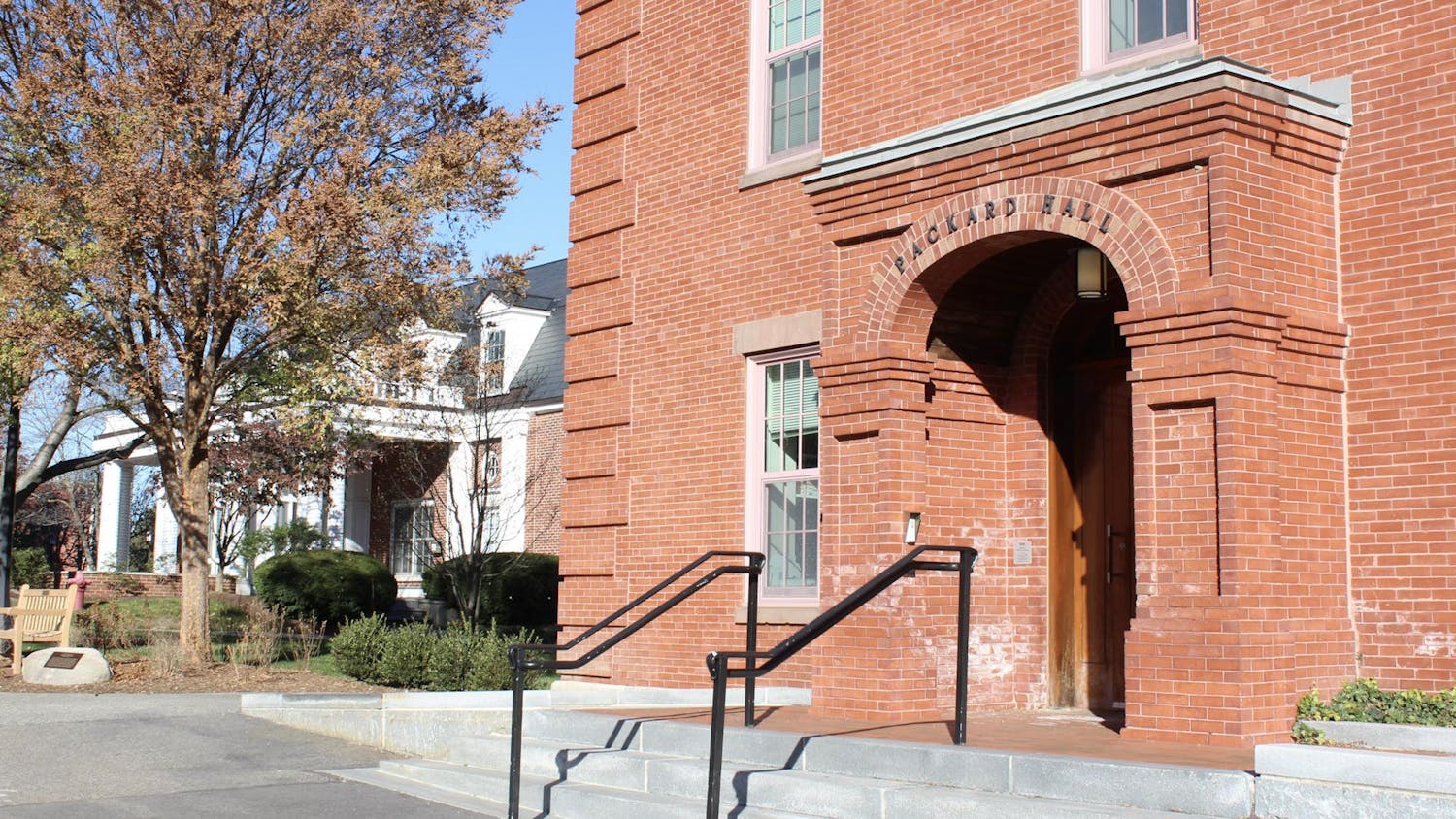The Jonathan M. Tisch College of Civic Life hosted Oren Cass, conservative economist, author and founder of American Compass, to give a talk cosponsored by the Tufts Federalist Society and Tufts Republicans on Tuesday.
Before founding American Compass, Cass worked as a senior fellow at the Manhattan Institute from 2015 to 2019. Cass also worked as a Domestic Policy Director for Mitt Romney’s campaign from 2011 to 2012.
Cass spoke about the conditions that capitalism relied on, and argued that America no longer holds those necessary conditions. Cass emphasized the misinterpretation of the invisible hand, the concept that consumers’ self-interest naturally balances the market, relying on the assumption that consumers prefer to invest their money domestically. However, Cass said, with globalization, the cheapest, most accessible products do not always lean domestic.
In order to create an environment for capitalism to thrive, argued Cass, domestic investments must look more attractive than foreign ones, both through investments and tariffs.
“Let’s say you want chips made in the United States, and so you just say 50% tariff on chips. The theory of the case is chips are now going to be so expensive that someone’s going to start building a plant,” Oren said. “That will work eventually, but in the meantime, everyone has to pay an extra 50% for their chips.”
Despite the consequences and implications of tariffs, Cass didn’t dismiss completely the importance and motivation behind tariffs.
“I think tariffs are important also. You don’t want to go around and find everything you might want and pay people to build it,” Cass said. “But if you know there’s something really important, and you’d need a really high tariff otherwise to bring it back, you’re much better off just picking that thing and saying, ‘Well, let’s put some investment into getting it going.’”
Cass noted, however, that this process was lengthy for the CHIPS and Science Act, and that this five-year process would be unproductive to repeat in the future.
“You’re never going to get anywhere. And so one thing we do a lot of work on in American Compass is thinking about and proposing the kinds of policies that would equip the government to do industrial policy generally. So for instance, what’s called a development bank or a finance corporation – that’s a sort of quasi-public entity with government funding, but has the authority to consider a wide range of projects,” Cass said.
Throughout his talk, Cass also spoke about his thoughts on the current administration and the limitations of current conservatives’ thinking.
When speaking to the Daily about the Trump administration, Cass stated that some of the comments made by President Trump can be difficult to evaluate and give importance to accurately, but ultimately critiqued the media’s focus on Trump’s often contradictory statements.
“The entire media ecosystem and approach was established in a world where politicians were hyper on-message and intentional, the exact way something was worded and what order it was said in was specifically designed to signal all of these various things. And that’s just not the world that you're in, in a Trump administration,” Cass said.
Cass expanded on this point, saying that there is a “swoop effect” among political parties, where there isn’t a fixed ideology among parties over time.
Cass spoke about past administrations, emphasizing what he described as the natural flow of power and shift among parties over the past several decades.
“What tends to happen is that a party lands on an effective ideology and agenda that brings together a successful coalition and wins elections and gets to do the things it wants. And hopefully those things work well, but then it becomes sort of locked into that, and will stick with that as that becomes less effective and popular … until it descends to the point that it breaks,” Cass said.
Cass concluded by stating that the GOP is in a unique political moment since Trump became President-elect.
“It’s a very interesting anomaly that Trump [won] the election. And so even though the Republican Party is totally cracked and trying to figure out what comes next, it’s doing that even as you have Trump at the helm of it,” Cass said. “And Trump has some areas where he’s defined a very clear vision, and that is likely to become the Republican position.”
Reflecting forward, Cass expresses the change and uncertainty for the future policy agenda of the Republican party in a post-Trump era.
“But in general, I don’t think he has a very fully formed ideology or agenda or concept of what the coalition is going forward. And so I think to a significant extent, that has all been sort of suspended in the short run. But whatever comes after Trump the task will be to figure that out,” Cass said.






